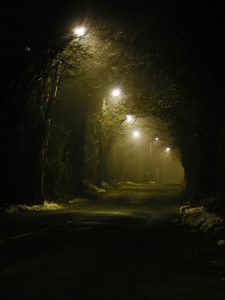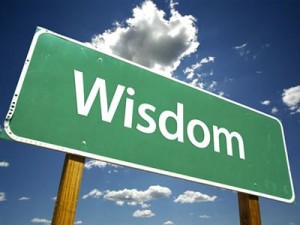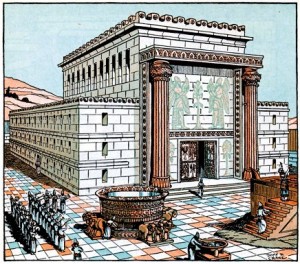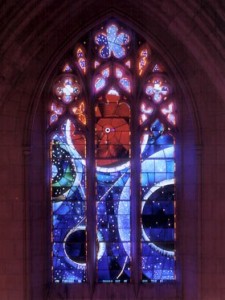====================
A homily offered by the Rev. Dr. C. Eric Funston on the Sixth Sunday after Pentecost, June 26, 2016, to the people of St. Paul’s Episcopal Church, Medina, Ohio, where Fr. Funston is rector.
(The lessons for the day are Proper 8C of the Revised Common Lectionary: 1 Kings 19:15-16,19-21; Psalm 16; Galatians 5:1,13-25; and St. Luke 9:51-62. These lessons may be found at The Lectionary Page.)
====================
 As many of you know, this past week was a harrowing one for my wife and for me; specifically, Wednesday was one of those days you would rather not have to live through. In the afternoon, I was told by a urologist that I probably have prostate cancer, and later that night Evelyn nearly died from pulmonary embolism. She is OK now – I will be leaving right after this service to bring her home from the hospital – and my diagnosis will be either confirmed or proven wrong by a biopsy in about a month.
As many of you know, this past week was a harrowing one for my wife and for me; specifically, Wednesday was one of those days you would rather not have to live through. In the afternoon, I was told by a urologist that I probably have prostate cancer, and later that night Evelyn nearly died from pulmonary embolism. She is OK now – I will be leaving right after this service to bring her home from the hospital – and my diagnosis will be either confirmed or proven wrong by a biopsy in about a month.
So all is well . . . but, really, I’d rather go back to Tuesday!
And I’m not the only one who’d like to start the week over!
No doubt, you have heard about this week’s “Brexit” referendum in Great Britain which decided whether the United Kingdom would continue to be part of the European Union. There were the Remainers or the “Ins” on the side of doing so, and the Leavers or the “Outs” on the side of exiting the Union. The “Outs” won to the shock and horror of nearly everyone else around the world.
The pound sterling lost more than 30% of its value in a matter of hours. Stock markets tumbled; the FTSE 100 index (the British equivalent of the Dow-Jones Industrial Average), which had closed the previous day at £6,388 opened the next morning at £5,789, a drop of more than 8.5%, inching back up during the day to a final loss of 3.15% The Dow itself closed down 610 points, its eighth-largest point loss ever.
In my humble opinion, the entire exercise of the referendum, from the decision by the Conservative government of David Cameron to hold it, to the very poor campaign run by the Remainers who simply didn’t believe they could lose, to the patently dishonest campaign waged by the Leavers, to the eventual outcome has been and is an exercise in monumental stupidity!
That the Outs’ victory was predicated on falsehood is the worst part of the whole mess. As Nick Cohen wrote in Saturday’s edition of The Guardian, the “politicians who [led the Vote Leave effort] knowingly made a straight, shameless, incontrovertible lie the first plank of their campaign. Vote Leave assured the electorate it would reclaim a supposed £350m Brussels takes from us each week. They knew it was a lie.” (EU referendum Opinion) Nigel Farage, one of those politicians, after the votes were counted and Leave had won, admitted that the assertion was (as he put it) “a mistake.” (USUncut)
The Brexit Leave campaign was a lie in another much more subtle way, as well, a way to which we on this side of the Pond are equally vulnerable. The campaign played upon the people’s nostalgia for a Great Britain that they believe used to exist: “We want our country back” was the campaign slogan of Mr. Farage’s UK Independent Party, and other Outs resurrected Margaret Thatcher’s early campaign slogan from the 1960s “Let’s Make Britain Great Again.” The day after the election, London’s Daily Star newspaper ran a picture of a bulldog (remember that Winston Churchill’s mascot was the British bulldog) with the headline “Now Let’s Make Britain Great Again.”
Nostalgia has been defined as the “yearning to return home to the past – more than this, it is a yearning for an idealized past – a longing for a sanitized impression of the past . . . – not a true recreation of the past, but rather a combination of many different memories, all integrated together, [with] all negative emotions filtered out.” (Hirsch, Alan R., Nostalgia: a Neuropsychiatric Understanding)
And that brings us to today’s lessons, to Elijah’s call to Elisha to be his servant and apprentice prophet, to Jesus’ encounter with three potential disciples who wish to follow him but have other business to attend to before hitting the road. Elisha had such business as well – he wished to say good-bye to his parents – and Elijah allowed it (although the Hebrew is unclear; we cannot tell if he did so supportively or grudgingly).
Jesus was not so understanding. He told the first potential follower that to come with him would be hard and uncomfortable and, by not telling us that the man came along after that, Luke implies that this dissuaded the would-be disciple. When the second asked for a delay to bury his father, Jesus replied, “Let the dead bury the dead;” not the most pastoral response! And to the third who, like Elisha wished simply to say farewell to family, Jesus said, “No one who puts a hand to the plow and looks back is fit for the kingdom of God.”
“Here, Jesus makes reference to the story of Elisha out plowing in the field that we encountered in the first reading. And so it seems that Elijah’s [enigmatic reply] was indeed scolding Elisha – or at least, Jesus is suggesting Elisha should have been scolded for his request to kiss his parents goodbye.” (Soltis, Kathryn Getek, The Tensions of Discipleship)
The text from the First Book of Kings doesn’t tell us whether Elisha did, in fact, kiss his parents. What it tells us is that he slaughtered the oxen with which he was plowing, cooked them over a fire made by burning his farming equipment, and fed them as a farewell feast to his co-workers. We sometimes speak of burning our bridges behind us; Elisha prophetically acted out such a burning – the destruction of the return path in this feast of boiled oxen. Nostalgia was no longer an option for the young prophet-to-be.
Elisha, a farmer who had plowed a field, seems to have known that you have to watch carefully in front of you to keep the furrows straight, that you have to look forward not behind. “Look backward and you will swerve one way or another.” (Rogness, Michael, Commentary on Luke 9:51-62) And so, to avoid doing so, he destroys that which might lure him to look backward.
Elisha knew this and so, too, did the people of Jesus’ time. Luke “attributes to Jesus a saying that would have been rather well-known in the ancient Mediterranean world. For example, in Hesiod’s Works and Days [a didactic poem written around 700 BCE], a plowman is described as one ‘who attends to his work and drives a straight furrow and no longer gapes after his comrades, but keeps his mind on his work.’ In other words, to look back from the plow (whether to family living or dead) was to risk cutting a crooked or shallow furrow and thus ruining the work altogether! There is no place for looking back or even trying to look in two directions at once (being ‘two-faced’); rather, would-be disciples must be single-minded in purpose, setting their faces like Jesus on the task at hand.” (Parsons, Mikeal C., Commentary on Luke 9:51-62)
Nostalgia, that bittersweet yearning for a past that never was, encourages us to be “two-faced,” because nostalgia is a lie. Nostalgia is never true. “Nostalgia is a dirty liar that insists things were better than they seemed,” writes the poet Michelle K. Another poet, Alessandro Baricco, writes, “It’s a strange grief… to die of nostalgia for something you never lived.” He continues:
What is nostalgia?
What is it for you?
Is it the other half of a whole…
a fraction of a whole,
which takes up more space than the rest…
Is it a perfect day…
the sun was shining even if it was stormy,
even if it was the darkest of night…
there was sun in your heart
and it lit everything up in a glow
which you will never forget…
which still shines…
but do you remember it as it was or as…
it felt in that blissful moment
when all was right in the world, in your world…
it feels now seen from a distance
which has changed what it was
because of where you are now…
you wish you’d enjoyed that moment
rather than wasting it…
you wasted it…
why…
because it wasn’t as good as…
but now it is…
better than…
so you make amends in retrospect…
Is it a perfect memory…
one which isn’t anything like
what actually happened,
but you like this version better…
time heals wounds
sometimes by blurring the truth
with pretty lies…
Have you ever been accused of lying
when you told the truth…
it was not what others wanted to hear
and so it became a lie.
Have you ever accused someone of lying
because they told the truth…
but it was not one you wanted to hear
and so it became a lie.
Have you ever wondered how much
of what you remember is true…
and how much is a lie.
So much gets clouded…
sometimes by very beautiful clouds…
in a cerulean sky…
Like all untruth, nostalgia is a trap! It is a trap, says author C.G. Blake in his advice to new writers, because “by living in the past, we cheat the present.” He continues:
I’m a big believer in living in the present. Learn from the past, yes. Revere loved ones who have passed on. Keep the past in our hearts, but keep our eyes looking forward. Don’t dwell on the past because no matter how hard you wish it, you’re never going to change it. You can only change your present and your future. (The Nostalgia Trap)
We’re never going to change the past. And we are never, ever going to go back to it, especially not to that sanitized impression of the past with no negative emotions that nostalgia offers us!
If we dwell on it, we are trapped. The Brexit Outs wanted to make their country “great again.” What they got was a monumentally stupid mess of unknown proportions that no one knows how to handle, a country in turmoil where the Prime Minister had no choice but to resign, a nation now fracturing as politicians in Scotland call for a second independence vote and politicians in Northern Ireland seek a poll on whether to leave the United Kingdom and become part of the Republic of Ireland. The Brexit Leavers wanted to “take back their country.” What they got was a free falling economy, a nearly 10% reduction in the value of their investments and pensions, and a very uncertain future. They were trapped by the false promises of nostalgia.
Don’t get me wrong! I understand the lure of nostalgia, the desire to go back to some simpler and emotionally better time, even one that never existed. As I said, I’d like to go back to Tuesday! But we are never, ever going to go back to – nor recreate – the past!
What sets us free from the nostalgia trap, what sets us free from any lie, from any untruth, is truth. “You will know the truth,” Jesus told his followers, “and the truth will make you free.” (John 8:32) And the Truth tells us to get started on the important the work before us and to fix our gaze straight ahead, because “no one who puts a hand to the plow and looks back is fit for the kingdom of God.”
====================
A request to my readers: I’m trying to build the readership of this blog and I’d very much appreciate your help in doing so. If you find something here that is of value, please share it with others. If you are on Facebook, “like” the posts on your page so others can see them. If you are following me on Twitter, please “retweet” the notices of these meditations. If you have a blog of your own, please include mine in your links (a favor I will gladly reciprocate). Many thanks!
====================
Father Funston is the rector of St. Paul’s Episcopal Church, Medina, Ohio.
 In the beginning, God said . . . and there is creation.[1] In the beginning was the Word, and the Word became flesh . . . and there is salvation.[2] When we cry “Abba! Father!” it is not us but the Spirit who speaks through us . . . and there is sanctification.[3] At the core of our faith is communication and personal relationship, and how we express that is vitally important. It is more than an intellectual enterprise. Choosing, using, hearing, reading, interpreting, and translating our words and those of scripture is a spiritual and existential exercise, as well. To demonstrate this, I have brought a prop to use this morning: this. [Bottle of Mountain Dew]
In the beginning, God said . . . and there is creation.[1] In the beginning was the Word, and the Word became flesh . . . and there is salvation.[2] When we cry “Abba! Father!” it is not us but the Spirit who speaks through us . . . and there is sanctification.[3] At the core of our faith is communication and personal relationship, and how we express that is vitally important. It is more than an intellectual enterprise. Choosing, using, hearing, reading, interpreting, and translating our words and those of scripture is a spiritual and existential exercise, as well. To demonstrate this, I have brought a prop to use this morning: this. [Bottle of Mountain Dew] If I were preaching this coming Sunday (which I’m not … but if I were …), I’d look at darkness. Strange choice, perhaps, for the Sunday after Christmas Day, but the Episcopal Church lectionary always specifies the prologue of John’s Gospel as the gospel lesson for this Sunday and it includes that verse: “The light shines in the darkness, and the darkness did not overcome it.”
If I were preaching this coming Sunday (which I’m not … but if I were …), I’d look at darkness. Strange choice, perhaps, for the Sunday after Christmas Day, but the Episcopal Church lectionary always specifies the prologue of John’s Gospel as the gospel lesson for this Sunday and it includes that verse: “The light shines in the darkness, and the darkness did not overcome it.” As many of you know, this past week was a harrowing one for my wife and for me; specifically, Wednesday was one of those days you would rather not have to live through. In the afternoon, I was told by a urologist that I probably have prostate cancer, and later that night Evelyn nearly died from pulmonary embolism. She is OK now – I will be leaving right after this service to bring her home from the hospital – and my diagnosis will be either confirmed or proven wrong by a biopsy in about a month.
As many of you know, this past week was a harrowing one for my wife and for me; specifically, Wednesday was one of those days you would rather not have to live through. In the afternoon, I was told by a urologist that I probably have prostate cancer, and later that night Evelyn nearly died from pulmonary embolism. She is OK now – I will be leaving right after this service to bring her home from the hospital – and my diagnosis will be either confirmed or proven wrong by a biopsy in about a month.  What is fear of death but fear of the unknown? The fear of death and the unknown brings anxiety, despair, and a frantic search for meaning. The fear of death and the unknown distracts us and makes us afraid to truly live. We end up fearing both death and life; we end up not attending to those things which are most important.
What is fear of death but fear of the unknown? The fear of death and the unknown brings anxiety, despair, and a frantic search for meaning. The fear of death and the unknown distracts us and makes us afraid to truly live. We end up fearing both death and life; we end up not attending to those things which are most important. On the second day of Christmas the church remembers a murder, the martyrdom of Stephen, and our Daily Office lectionary won’t let us forget it. Often the readings of the Daily Office seem to have nothing to do with the season and they seldom are tied to a saint’s commemoration, but today the morning and evening readings tell the whole story in gruesome detail.
On the second day of Christmas the church remembers a murder, the martyrdom of Stephen, and our Daily Office lectionary won’t let us forget it. Often the readings of the Daily Office seem to have nothing to do with the season and they seldom are tied to a saint’s commemoration, but today the morning and evening readings tell the whole story in gruesome detail. Perhaps among the most familiar words from St. John’s apocalypse, “Blessed are they who are invited to the marriage feast of the Lamb.” They are used as a fraction anthem or invitation to communion in many churches. But in this brief passage from Revelation, the most powerful image for me today is the angel saying, “I am a fellow-servant with you and your brothers and sisters.”
Perhaps among the most familiar words from St. John’s apocalypse, “Blessed are they who are invited to the marriage feast of the Lamb.” They are used as a fraction anthem or invitation to communion in many churches. But in this brief passage from Revelation, the most powerful image for me today is the angel saying, “I am a fellow-servant with you and your brothers and sisters.” The collect for today from The Book of Common Prayer:
The collect for today from The Book of Common Prayer: On the cover of our worship bulletin this morning is a depiction of King Solomon’s Temple. It’s an artist’s rendering of someone’s reconstruction of the Temple based on the description of its construction in the Old Testament record. Our first reading today (from the First Book of Kings), as long as it was, is just a small part of the dedicatory prayer that King Solomon offers when the Temple is finished and consecrated.
On the cover of our worship bulletin this morning is a depiction of King Solomon’s Temple. It’s an artist’s rendering of someone’s reconstruction of the Temple based on the description of its construction in the Old Testament record. Our first reading today (from the First Book of Kings), as long as it was, is just a small part of the dedicatory prayer that King Solomon offers when the Temple is finished and consecrated. Where were you on July 20, 1969? In July of 1969 I was living in a boarding house and studying in Florence, Italy. The boarding house or pensione in which I lived, Pensione Frati, did not have a television. My landlord, Colonello Roberto Frati, arranged for me and the other Americans living there to go to his sister-in-law’s home where we could watch Neil Armstrong’s and Buzz Aldrin’s moon landing on her TV – this great big box of a television set with a tiny black-and-white screen. We all gathered around that box peering into that tiny screen listening to the Italian news commentators and struggling to hear the American commentary behind them. I’m sure that when we heard of Commander Armstrong’s death we all thought about wherever we were on that day at that moment when he stepped out of the lunar lander and became the first human being to walk on another world.
Where were you on July 20, 1969? In July of 1969 I was living in a boarding house and studying in Florence, Italy. The boarding house or pensione in which I lived, Pensione Frati, did not have a television. My landlord, Colonello Roberto Frati, arranged for me and the other Americans living there to go to his sister-in-law’s home where we could watch Neil Armstrong’s and Buzz Aldrin’s moon landing on her TV – this great big box of a television set with a tiny black-and-white screen. We all gathered around that box peering into that tiny screen listening to the Italian news commentators and struggling to hear the American commentary behind them. I’m sure that when we heard of Commander Armstrong’s death we all thought about wherever we were on that day at that moment when he stepped out of the lunar lander and became the first human being to walk on another world.

